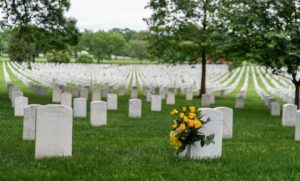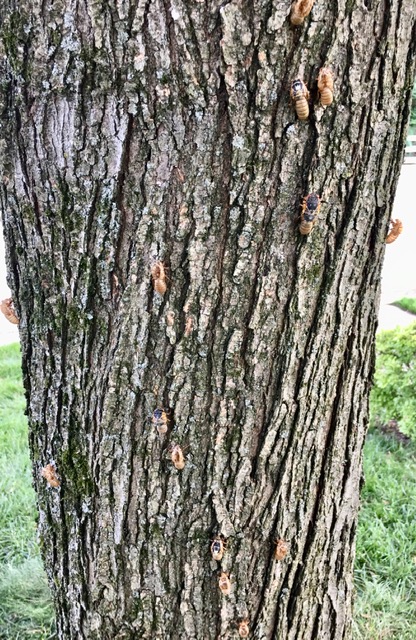Since Todd Harper moved from a minority board member to chair in February, board members have become more vital in overseeing agency activities. Their increasing dialogue and comments at public meetings, if followed through, could be a harbinger of greater NCUA accountability to the credit union system.
In theory, the board should be the true point of connection with, and representative of, the best interests of credit unions and their members. In practice, chairman of different backgrounds, parties and ambitions have acted as the sole leader for the agency. Some have openly stated and/or acted as though credit unions have no role in the agency’s spending, its problem solving, or its management priorities.
Some non-chair members have occasionally treated their status as a part time job, a public sinecure requiring only visibility at board meetings, like credit union volunteer directors. That does not seem to be the case now.
Three Diverse Backgrounds
The opportunity for a more vibrant, effective board comes from the very different experiences of each member.
Kyle Hauptman, vice chairman is the newcomer and “outsider.” No credit union background, a professional career in finance, he brings the ability to see the industry from an objective point of view. To become a quick learner, his first decision was to find a senior advisor who had a deep knowledge of credit unions from outside NCUA and government.
Chairman Harper is the “insider.” He describes himself as the first NCUA staff person appointed to the board having served as Chairman Matz Senior Policy advisor and PACA director from 2011-2017. He references his time as a hill staffer working on financial legislation and draws parallels with FDIC to support his views. Although his term has expired, he continues in place until his successor is appointed.
The board “veteran” is Rodney Hood who served on the NCUA board from 2005-2009 and was reappointed by President Trump again in 2019. His positions are influenced by the priorities he promoted as Chairman from 2019 through January 2021. However, as he is no longer in that priority setting role, his perspective from his earlier tenure seems to increasingly inform his approach.
The Signs of Change
Board decisions are usually determined in advance, or else not placed on the agenda. Therefore, the discussion around reports, the dialogue with staff and the comments related to the agenda become more informative than formal policy votes.
The “Veteran”
For example, Hood has presented statements about his focus going forward. He has used the phrase “evidence based” judgments versus relying on forecasts of future “facts.” In reference to the corporate crisis which broke in his first tenure, he cited the virtue of “patience” as an important lesson when making consequential decisions in uncertainty.
He has commented on the agency’s management of the level of cash in the operating fund:
I will be asking tough–albeit fair– questions about the Operating Fund carryover balance
In my view, his most consequential statement in the May board meeting came during the request for credit union comments on the NOL level in the NCUSIF. His words:
Again, Mr. Chairman, we must recognize that our model is a very different premium model than the FDIC’s model. Credit unions are legally committed and bound to update a large majority of the fund’s equity contribution. Credit unions today provide the bulk of the capital contributions that are the basis of the fund’s soundness. It’s a cooperative insurance system that we run at the NCUA.
This was a statement that every credit union would agree with. The fact is that credit unions legally stand behind the fund, not the government. More importantly it came during a week in which the chairman had endorsed legislation to change the NCUSIF’s cooperative model to be more like the FDIC.
The “Outsider”
Kyle Hauptman presents his topics in a more Socratic dialogue with staff. Several meetings ago, he referenced discussions during a credit union meeting indicating credit unions felt inhibited about critiquing examiner conduct. He asked if it were proper for credit unions to record their meetings. Staff waffled. He then opined he thought it would be OK.
From his first board meeting he repeated his view that the agency is spending members’ money. That NCUA has a fiduciary responsibility for these funds and should not be holding excess balances that credit unions can use more effectively making loans. He stated the regulator should not have an “itchy trigger finger” when it comes to making decisions costing credit unions.
He has requested staff to enhance communication of board decisions with credit unions, preferably on the website. One example was the process for distributing dividends from the AME surplus; and in May, how credit unions can present their views on the proper level for the NOL.
Perhaps the most heartening discussion in May was on the seemingly arcane rule for derivatives. The back and forth with staff on the role of derivatives and later, on the changing reference rate for LIBOR, demonstrated a knowledge of financial markets that is very rare at the board.
The “Insider”
Chairman Harper has continued to put forward his views while at the same time affirming some of the comments of his fellow board members. He supported a “look back” to assess the agency’s management of the corporate crisis. He concurred with Hood’s description of the NCUSIF as a cooperative fund. There appears to be no opposition to increased director reliance on actual facts versus that is the way we have always done it; for historical evidence versus hypothetical models.
His challenge is whether he can move on from his tenure with Chairman Matz when she declared that “credit unions did not represent their members,” had “no interest in the agency’s budget,” and that as an independent agency, it “was not good government for the people who are regulated trying to participate in the budget making process of the regulator.”
The Big Test Coming Up
The most important issue on the horizon is how the board will respond to the comments submitted by credit unions on the maximum level of the NOL in the NCUSIF.
That cap now is 1.38, a result of decisions made in 2017 when the TCCUSF fund was merged with the NCUSIF. From then till today, is the first time in the history of the fund, that the NOL has been set above 1.3% of insured shares.
This 2017 decision was preceded by a request for comments on the board’s merger proposal. The two-person board received 663 comments during the 45 days provided. The NCUA staff stated in its summary of comments that only 12 credit unions appeared to support the agency’s plan. That is 98% were opposed.
A focus of the critiques was the false modeling to justify the NOL increase to 1.39%. Credit unions universally opposed this action, yet NCUA changed not a thing from the original proposal. Credit unions spoke, but NCUA did not listen. Even when presented with facts that contradicted the agency’s financial assumptions.
A long analysis of this event is reported in Time for Real Credit Union Disruption.
Unity, Not Uniformity
Unity is not the same as uniformity. NCUA board members have different competencies and points of view. Unity relies on reconciliation of differences, not giving them up. This is done by uniting around what is held in common. Hopefully, that core is deciding for the best interests of credit unions and their members, not NCUA, or even a specific political philosophy.
A pragmatic, fact-based approach can create unity for the NCUA board’s most critical decisions. That could transform the board into a true asset for credit unions that continues to appreciate not diminish in value.



